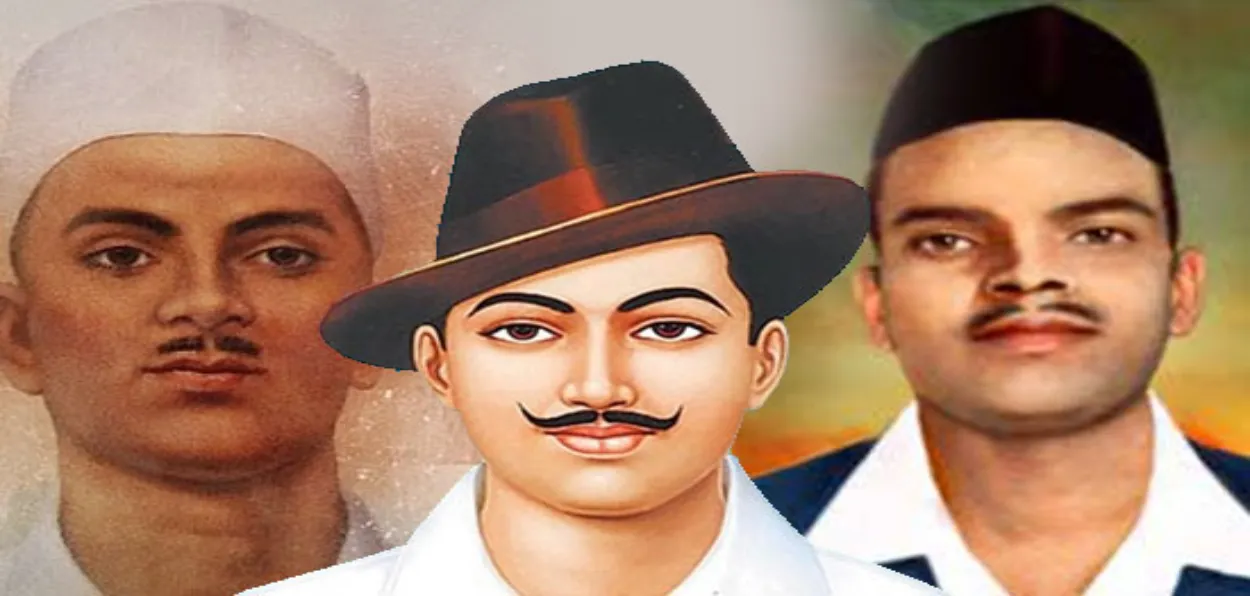
Saquib Salim
“So I guess it is in my genes, this melancholy I can never quite shake off.” Elif Shafak’s words in her novel The Island of Missing Trees aptly describe the yearning of Bhagat Singh to fight for India’s freedom from the British. Bhagat Singh, a youth icon for all times, was 23 when he along with Sukhdev and Rajguru went to the gallows on 23 March 1931 in Lahore jail.
Bhagat Singh’s father Kishen Singh and uncle Ajit Singh were important revolutionary figures from Punjab in the early 1900s. Ajit Singh was sent to Mandalay jail for his anti-British activities and later he went into exile.
During the First World War, Ajit Singh gathered the Indian revolutionaries in some foreign land and with the help of Shyamji Krishna Varma, Bhikaji Cama, Syed Zia ud Din (of Iran), Chempakaraman Pillai, etc. to fight against the British Empire. He lived in Iran, Brazil, Italy and Germany as Mirza Hassan Khan till 1946 and played a key role in the formation of the Ghadar Party.
During the Second World War, he formed Azad Hind Fauj in Italy with the help of Iqbal Shaidai. Subhas Chandra Bose replicated the model in Germany and Japan. For decades Ajit Singh was the most wanted Indian for the British Empire and only senior revolutionaries knew that Hassan Khan living in Brazil was Ajit Singh.
.jpg)
Ajit Singh, father of Shaheed Bhagat Singh
Bhagat Singh sought advice from this illustrious uncle. Since Ajit Singh was living in hiding and Bhagat Singh was not supposed to know even his location and address, he sent letters to his father through his uncle.
Ajit Singh recalled in his autobiography, “Bhagat Singh wrote to me to come back to India and to continue the unfinished work here and that he would be by my side; also he wrote me that the country was ripe for revolutionary struggle and sent me cuttings from papers showing that questions were asked in Assembly about my whereabouts, and [in case] the Government arrested me on my return to India and started any case against me, the Government replied that I was free to return to India and that no case would be started against me.”
A senior revolutionary with a ripe experience in political manoeuvring, Ajit Singh understood that the British Empire would not walk the talk. He would be arrested as soon as he reached Indian Territory. He believed that, rather, a man of Bhagat Singh’s caliber should be trained in Europe for revolutionary politics.
Ajit Singh writes, “I wrote him back that it would be better if he came here and this would allow him to study how revolutionary movements were organized in other countries.”
Interestingly Ajit Singh says that Bhagat Singh was also in contact with Rash Behari Bose. He was one of the leaders of the 1915 Lahore Conspiracy Case and lived in Japan. Rash Behari Bose formed the Indian National Army in Japan during the Second World War, which was later handed over to Subhas Chandra Bose. Subhas made him advisor of Azad Hind Fauj commanded by himself.
Ajit Singh notes, “Bhagat Singh was also in touch with Rash Behari Bose who wrote to him to get in touch with Ajit Singh and get military training by joining him abroad. Even the Japanese Government wanted reliable Indians, Bose added, and that if he came here he could arrange for his military training and this would help him when the next war broke out which was expected in another 4 to 5 years.
ALSO READ: We are loyal Indians: kin of Kashmiri secessionists
All arrangements had been completed and a passport for Bhagat Singh had been obtained when the whole plan was upset by an irresponsible remark by one of his party members to the effect that Bhagat Singh was afraid of arrest, that was why the job of throwing a bomb in the Assembly had been entrusted to one Ram Saran Das although Bhagat Singh was the fittest person to do it. It was too much to offend the bravery of Bhagat Singh and he decided to do it himself.”
Bhagat Singh could not go to Japan and get military training otherwise the course of history would have been much different. Indians could have got another brave intelligent leader along with Subhas Chandra Bose to command Azad Hind Fauj formed with the help of Japan.
